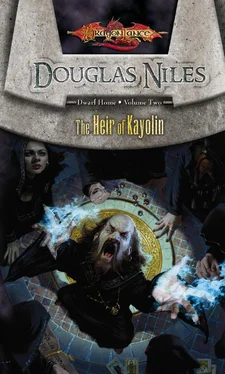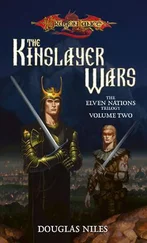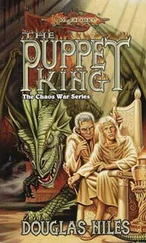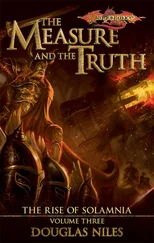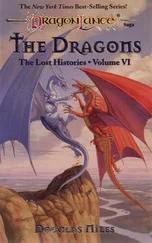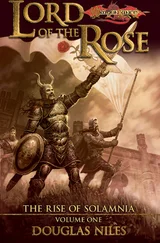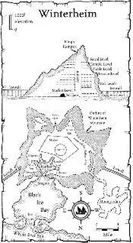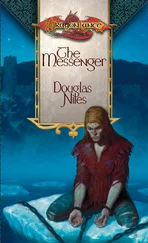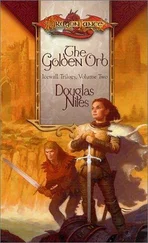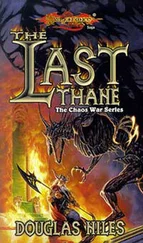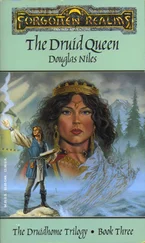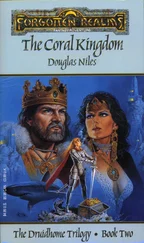Douglas Niles - The Heir of Kayolin
Здесь есть возможность читать онлайн «Douglas Niles - The Heir of Kayolin» весь текст электронной книги совершенно бесплатно (целиком полную версию без сокращений). В некоторых случаях можно слушать аудио, скачать через торрент в формате fb2 и присутствует краткое содержание. Год выпуска: 2012, ISBN: 2012, Издательство: Random House Inc Clients, Жанр: Фэнтези, на английском языке. Описание произведения, (предисловие) а так же отзывы посетителей доступны на портале библиотеки ЛибКат.
- Название:The Heir of Kayolin
- Автор:
- Издательство:Random House Inc Clients
- Жанр:
- Год:2012
- ISBN:9780786962686
- Рейтинг книги:5 / 5. Голосов: 1
-
Избранное:Добавить в избранное
- Отзывы:
-
Ваша оценка:
- 100
- 1
- 2
- 3
- 4
- 5
The Heir of Kayolin: краткое содержание, описание и аннотация
Предлагаем к чтению аннотацию, описание, краткое содержание или предисловие (зависит от того, что написал сам автор книги «The Heir of Kayolin»). Если вы не нашли необходимую информацию о книге — напишите в комментариях, мы постараемся отыскать её.
The Heir of Kayolin — читать онлайн бесплатно полную книгу (весь текст) целиком
Ниже представлен текст книги, разбитый по страницам. Система сохранения места последней прочитанной страницы, позволяет с удобством читать онлайн бесплатно книгу «The Heir of Kayolin», без необходимости каждый раз заново искать на чём Вы остановились. Поставьте закладку, и сможете в любой момент перейти на страницу, на которой закончили чтение.
Интервал:
Закладка:
Willim turned his eyeless face toward the ceiling. He muttered a single word-no potion for him! — and vanished, leaving the lair to the smoke and the heat and the churning protection of the imprisoned monster.
TWO
The high Kharolis was the greatest mountain range on the continent, a soaring realm of rocky summits, frigid glaciers, and sheer cliffs. The inhospitable terrain was not conducive to human habitation, nor was it inviting to the cities and towns of any civilized, nor even uncivilized, folk. It was a realm of precipice and rocky crag, of ice and storm, fit only for the wild beasts and, perhaps, the occasional hill giant. Even the Neidar hill dwarves disdained the rugged heights, preferring instead to live in the more temperate and fertile valleys that surrounded the great range on all sides.
Underneath those mountains, however, lay a different reality: a mighty kingdom, carved into the bedrock of the mountain range, including a subterranean sea, one great city, many warrens and mines wherefrom the inhabitants drew sustenance and mineral wealth. The teeming city of Norbardin and the deep, still sea were flanked by vast, ruined cities, proof of an even greater might in a time not so long past. It was Thorbardin, the ancient and greatest home of the dwarf race upon all the world of Krynn.
Much of Thorbardin’s population, wealth, and industry were centered around the great metropolis of Norbardin, a relatively new city. Norbardin had been created by the decree of the former king, Tarn Bellowgranite, as a matter of necessity. Throughout most of the nation’s history, five great cities had thrived around the shores and in the environs of the Urkhan Sea, the great subterranean waterway of dwarfkind. A sixth city, called the Life-Tree, was the home of the Hylar clan, traditional leaders of Thorbardin. The Life-Tree had been excavated in the massive pillar of living stone that rose from an island in the middle of the sea, extending all the way to the ceiling of the vast, watery cavern. For more than a thousand years, the cities had been the homes of the five clans: Hylar, Daewar, Daergar, Theiwar, and Klar. Each group of dwarves dwelled for the most part in insular, segregated communities, Hylar living beside Hylar, Daergar among Daergar, and so forth.
Decades earlier, when the Chaos War had wracked the world of Krynn, the ancient capitals of the clans had been weakened and scarred by the onslaught of horrible beings, legions of deadly warriors and their greatest allies, the fire dragons. The invading forces had been destroyed, but at great cost, leaving the legendary cities of Thorbardin weakened and ruined. The Life-Tree had collapsed upon itself, leaving only a few broken ruins as remembrance of that great city. A stubby, huge stalactite marked its place on the cavern’s ceiling, while a shattered island rose from the middle of the sea to mark the Life-Tree’s tomb. The great delvings along the shore of the lake had been scattered and broken, gouged and ravaged by the forces of Chaos until ceilings collapsed, columns fell, and the great, cavernous spaces were rendered too treacherous for continued settlement.
Thus had commenced the migration and creation of Norbardin, constructed around the great fortress that had once been Thorbardin’s North Gate. Most of the dwarves had abandoned their ancient cities and moved en masse to Norbardin. The most numerous clans-the Theiwar, Daergar, and Hylar-established flourishing districts in the steadily expanding cities. The miserable Aghar, the gully dwarves, trooped along behind-until Tarn Bellowgranite, the king of Thorbardin, was dethroned. Some time after his coronation, the new monarch, Jungor Stonespringer, offered a bounty for every Aghar killed. The gully dwarves who survived lived in fear, cowering in deep warrens, risking life and limb whenever they ventured forth to raid for garbage or scraps.
Another populous clan, the Klar, found themselves-or, more accurately, were deemed to be-unfit to dwell cheek by jowl with their fellow dwarves. Wild-eyed and unstable, the Klar were quick to anger, enthusiastic in violence, frenzied in celebration, and altogether unpleasant as neighbors. Though a few Klar lived in the underbelly of Norbardin, most of the clan wandered like savages through the backwaters and byways of the great kingdom. Called the “feral” Klar, they remained as unpredictable and maddened as ever.
Tyrannical and fanatical, King Stonespringer instituted a harsh and repressive regime. Claiming that he drew his power directly from the father god of dwarfkind, Reorx the Forge, the king banished females from all manner of commerce and public life; he executed criminals and foes with quick and ruthless violence; he demanded complete obedience-and significant tribute-from all who would call themselves his followers.
Despite the reign of King Stonespringer, Thorbardin remained the greatest nation of dwarves on all the world of Krynn. More than two thousand years in the making, the vast realm was recognized by most dwarves as the only true seat of the dwarf high king-the monarch recognized by the greatest number of the stubborn and tradition-bound peoples. All clans in every dwarven city were led by the clan thane, and in other, smaller nations such as Kayolin, the rank of “governor” was the commonly accepted title of leadership.
Frequently during the long age of those fractious peoples, the claimant of the throne was a controversial choice, and more often than not, he ascended to the lofty seat over the bleeding and broken bodies of his enemies. Indeed, fight by single combat-usually a mortal duel-was the time-accepted method of determining the worthiness of any prospective king. So it could be said Jungor Stonespringer was part of dwarf tradition.
However, he had carried the trend to an extreme of cruelty and violence that was unprecedented. He had gained the throne through victory in the Arena of Death, and many times had defended that throne, always dispatching the challenger in cunning combat. Though in recent years he had become physically thin and frail in appearance, his wiry strength was, if anything, more legendary. He had never met a quicker opponent, and he specialized in the fatal blow-to belly, throat, or lung-that allowed the victim to fully comprehend his defeat as his blood and wind slowly slipped from his flesh.
He had lost one eye in the arena, but his enemies, and even his friends, whispered that the golden orb he had placed in the empty socket could sense treachery in every unseen corner and every lightless alcove within the great city of Thorbardin. The golden orb carried no such power, of course, but Jungor Stonespringer encouraged the rumors and the silent fears. And, indeed, it seemed to his few friends and many enemies alike that he had a unique ability that allowed him to smell the slightest treachery, to anticipate actions, and to prepare his own defenses to meet a foe’s best-laid schemes. Jungor Stonespringer was not only alert, paranoid, and careful; he invariably proved to be very lucky as well.
Beyond the confines of the arena, King Stonespringer had arranged for the mutilations, disappearances, or murders of countless enemies. His decrees had forced the kingdom’s female citizens into the status of virtual chattel, enriched his friends, and impoverished his foes. Above all, he was admired and hated for the fact that he had forced the former king into exile and, following Tarn Bellowgranite’s departure, had ordered the great gates of Thorbardin sealed against the dangers-some real, many imagined-presented by the world beyond the mountain.
Jealous and suspicious, unpredictable and insecure, quick to anger and ruthless in revenge, Stonespringer had steadily tightened his grip upon the crown through edict and action. No enemy survived his wrath, no friend was fully trusted. The king prayed to his god, and his god must have been listening, for in all things the king’s will was-had to be-obeyed.
Читать дальшеИнтервал:
Закладка:
Похожие книги на «The Heir of Kayolin»
Представляем Вашему вниманию похожие книги на «The Heir of Kayolin» списком для выбора. Мы отобрали схожую по названию и смыслу литературу в надежде предоставить читателям больше вариантов отыскать новые, интересные, ещё непрочитанные произведения.
Обсуждение, отзывы о книге «The Heir of Kayolin» и просто собственные мнения читателей. Оставьте ваши комментарии, напишите, что Вы думаете о произведении, его смысле или главных героях. Укажите что конкретно понравилось, а что нет, и почему Вы так считаете.
